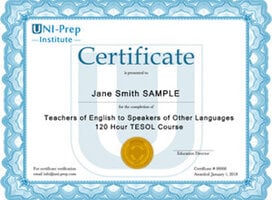Teach English in Belgium
While beer, chocolate, and waffles might be the first things that pop into your head when you think of Belgium, there is more to this small European country than delicious treats. If you’re looking for the opportunity to gain some trilingual immersion -- various parts of the country speak Dutch, German, and French -- there is no better place to consider than Belgium.
Teaching in Belgium means you are a stone's throw from some of the most famous cities in Europe. A weekend train ride could land you in London, Amsterdam, or Paris –- and hundreds of other cities are a short flight away.
While the cost of living is expensive, and is coupled with high taxation, the standard is living is high. Packed with beautiful medieval towns and quaint villages, Belgium offers both cosmopolitan city living and laidback country charm.
Private Elementary & Secondary Schools
Most expatriate teachers work in private elementary and secondary schools, as these schools do not require their teachers to be fluent in any language but English. However, fluency in Dutch, German, or French may help you to obtain a teaching role. Employment as a teacher at a private school tends to be a little more demanding than at a state school, as parents are usually paying large sums of money for their children to attend.
State Schools
Working at a state school can be more complicated, and would only be recommended if you speak fluent Dutch or French. To work in a state school, you must have your qualifications recognized by the government. However, if you are a strong Dutch or French speaker, you should consider this option, as it will allow you to work in state schools across all parts of Belgium.
Private English Language Schools
Private English language schools often require only a Teaching English as a Foreign Language (TEFL) certificate, and usually offer flexible working options. At a private English language school, you will teach a wide range of people, including adults, all of whom will have varying abilities. You will usually be required to work as an independent freelancer in this role, and the Belgium government sets strict rules around this type of work.
Tutoring at a Private Company
Some private companies in Belgium will hire TEFL teachers to up-skill and educate their workforce. These roles are usually part-time and based in one company or workplace, and you will be expected to deliver on a standardized curriculum. If you are looking to work for a private company, most jobs are based in Brussels. As with private English Language Schools, you are normally required to work legally as a freelancer.
Because of the demand for roles and the relatively smaller number of positions available to foreigners, competition for teaching positions in Belgium can be fierce. However, there are still opportunities to work in this small but diverse country.
When to Apply for Jobs in Belgium
Jobs are generally posted prior to the start of the Belgian school year, which is in early September. The summer is the best time to look for new roles, but there is no harm checking earlier -- some schools will be advertising jobs throughout the year.
Most hires are made on an annual basis, with contracts running from September to June when the Belgian summer holiday starts. If you are looking to work in a private English language school, you are able to job hunt at any time of the year, as these schools tend to take in teachers on a rolling basis.
How to Apply for Jobs in Belgium
Most teaching jobs in Belgium are advertised online. You can wait to apply until you've arrived in the country, but due to the limited number of visas for non-European Union residents, this can be a bit of a gamble.
When applying for jobs online, you should emphasize any qualifications you hold for teaching and any experience in the education sector. A strong education portfolio supporting your application is likely to be viewed favorably. You will also need to get your qualification recognized by the appropriate authority, which would be the Flemish Ministry of Education (North Belgium), or Wallon Ministry of Education (South Belgium).
Average Salary of Teaching Jobs in Belgium
Teachers can enjoy reasonable wages, but positions are fiercely competitive -- and the taxation can be brutal. Salaries at a state school start at around €1,500 per month, whereas private elementary and secondary schools pay around €1,800 per month.
Private English tutors can expect a slightly lower starting rate of around €1500 per month. Housing and other allowances are not typically included in your salary. To manage costs, many teachers share housing.
Qualifications Needed
A Bachelor's degree in English is the basic requirement for teachers in Belgium, even for private companies seeking tutors. Secondary school teachers are usually required to hold a Master's degree.
Most companies will also require some sort of teaching qualification, usually a TEFL certificate, diploma or degree. In addition, teachers that have considerable experience -- five years or more -- are far more likely to be successful in obtaining work. Private English language schools, however, will often accept a TEFL certificate alone.
Belgium offers quite a diverse range of destinations, and a relatively relaxed teaching lifestyle. If you think that working in Belgium might be for you, you'll need to become acquainted with the in-depth visa application process, and its strict rules.
Popular Destinations to Teach in Belgium
The cities of Belgium are the most popular destinations for teachers -- the capital city, Brussels, plus Antwerp, Bruges, and Ghent. Smaller towns usually only offer state school roles, but the larger cities are interested in hiring native English speaking staff.
Each of these cities offers a different lifestyle. Brussels is a bustling, cosmopolitan city. Antwerp has a heavy industrial focus, whereas Bruges and Ghent are more medieval and traditional in style.
Visas & Sponsorship
It can be quite hard to crack into the teaching market in Belgium from outside the E.U. as Belgian organizations tend to prefer hiring E.U. citizens who already have the right to work in Belgium, or students on working visas.
However, it isn’t impossible if you aren’t an E.U. citizen, but you can expect that you will have to supply a range of documentation to support your application. Your prospective employer should help you through this process and advise which specific items they require to progress.
Teacher Work Culture in Belgium
Most schools in Belgium will offer around 25-30 hours of work per week, leaving you with lots of time to explore the local area and travel. It is also expected that you put in some time outside of school to prepare for classes. In the larger cities, it is easy to integrate and make friends with other teachers, but teachers in smaller towns may find it more difficult.
Classroom Etiquette in Belgium
Due to the multi-lingual nature of most Belgian people, teaching a class can be a little overwhelming at first. However, Belgian children (and adults) are eager and willing to learn, although they may seem a little reserved by U.S. standards.
Students are generally respectful, but bullying is a problem in the country -- like most places throughout the world. The school day typically runs from 8:30 am to 3:30 pm, finishing a little earlier on Wednesdays.
Health & Safety
While it is not usually violent, there are tensions between the two major regions of Belgium -- Flanders and Wallonia. It is best to start a conversation with a stranger in English, as some locals may be offended if you speak the wrong language in their region.
The larger cities of Belgium have issues with pickpockets and muggings, but these acts of petty crime are usually not violent. If working and living in a large city, it's advisable to remain vigilant and not travel alone at night. Smaller towns are generally very safe.























